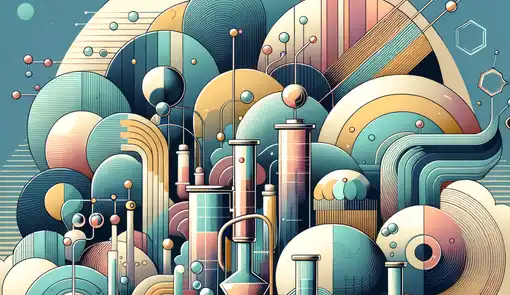Instrumentation Engineer
An Instrumentation Engineer is responsible for the design, development, installation, and maintenance of instruments that monitor and control machinery and processes.

Top Articles for Instrumentation Engineer
Sample Job Descriptions for Instrumentation Engineer
Below are the some sample job descriptions for the different experience levels, where you can find the summary of the role, required skills, qualifications, and responsibilities.
Junior (0-2 years of experience)
Summary of the Role
As a junior instrumentation engineer, you will be responsible for supporting the design, development, and maintenance of instrumentation systems utilized in various industrial processes. The role will require a blend of technical expertise and practical skills to ensure optimal performance and reliability of instrumentation equipment.
Required Skills
- Strong communication and interpersonal skills.
- Detail-oriented with a keen eye for accuracy.
- Hands-on experience with instrumentation hardware and software is a plus.
- Eagerness to learn and adapt in a fast-paced industry.
- Time management skills with the ability to prioritize tasks.
Qualifications
- Bachelor's degree in Electrical Engineering, Control Systems, or a related field.
- Understanding of instrumentation and control principles.
- Familiarity with industry standards and safety regulations.
- Strong analytical and problem-solving skills.
- Proficiency in computer-aided design (CAD) and other engineering software tools.
- Ability to work collaboratively in a team environment.
Responsibilities
- Assist in the design and development of instrumentation systems for industrial applications.
- Perform routine calibration, testing, and maintenance of instrumentation devices.
- Collaborate with senior engineers to troubleshoot and resolve instrumentation-related issues.
- Draft technical documentation, such as system specifications and operation manuals.
- Monitor the performance of instrumentation equipment and propose improvements as needed.
- Stay updated with the latest trends and technologies in the field of instrumentation engineering.
- Participate in project meetings and contribute to team discussions and problem-solving activities.
Intermediate (2-5 years of experience)
Summary of the Role
Seeking a detail-oriented and skilled Instrumentation Engineer to design, develop, install, manage, and maintain equipment used to monitor and control engineering systems, machinery, and processes. The ideal candidate will ensure that these systems and processes operate effectively, efficiently, and safely.
Required Skills
- Strong problem-solving and analytical skills.
- Experience with process simulators and CAD software.
- Ability to work in a multidisciplinary team environment.
- Excellent communication and project management skills.
- Proficiency in using various types of measuring instruments and controls.
- Knowledge of PID control theories and PLC programming.
- Competence with computer software for process modeling and simulation.
Qualifications
- Bachelor's degree in engineering (Electrical, Electronic, Instrumentation, or similar).
- 2-5 years of experience in instrumentation or control systems.
- Proven working experience in process engineering or with automated control systems.
- Understanding of industry standards and regulations (e.g., ISO, ISA).
Responsibilities
- Design and develop new control systems and instrumentation.
- Manage operations and maintenance of instrumentation and control systems.
- Collaborate with design engineers, purchasers, and other staff members involved in the production processes.
- Monitor the performance of existing systems and suggest improvements.
- Prepare and agree on project budgets, timescales, and specifications with clients and managers.
- Write reports and documentation, and provide technical support.
- Ensure that health and safety regulations are met.
- Analyze data and present findings in written reports.
- Liaise with clients, suppliers, contractors, and relevant authorities.
Senior (5+ years of experience)
Summary of the Role
As a Senior Instrumentation Engineer, you will be responsible for designing, developing, installing, managing and maintaining equipment which is used to monitor and control engineering systems, machinery and processes. Your expertise will be critical in ensuring the systems' performance, reliability, and safety. You will be expected to work closely with both control systems engineers and maintenance teams.
Required Skills
- Excellent analytical and problem-solving skills.
- Strong leadership and project management abilities.
- Proficiency in instrumentation-related software and hardware.
- In-depth knowledge of control and automation systems.
- Effective verbal and written communication.
- Capability to mentor and motivate team members.
- Willingness to engage in continuous learning and development.
Qualifications
- Bachelor's or Master's degree in Instrumentation Engineering, Electrical Engineering, Mechanical Engineering, or a related field.
- Minimum of 5 years' experience in an instrumentation engineering role.
- Proven track record of managing and implementing complex instrumentation projects.
- Familiarity with the principles of process control and industrial automation.
- Professional Engineer (PE) license or equivalent is preferred.
- Expertise in using CAD software for designing instrumentation systems.
- Strong understanding of industry-specific codes, regulations, and safety standards.
Responsibilities
- Design complex measurement and control systems for industrial use.
- Develop specifications for installing new instrumentation and control systems.
- Optimize plant and system operation through efficient control strategies.
- Lead maintenance and troubleshooting efforts for control systems and instrumentation.
- Coordinate with project management and other engineering teams in designing integrated solutions.
- Provide technical guidance and mentorship to junior engineers and technicians.
- Stay abreast of advancements in instrumentation technology.
- Ensure compliance with industry standards and safety regulations.
- Carry out system and equipment calibration, configuration, and functionality tests.
- Manage technical documentation for instrumentation and control systems.
See other roles in Science and Technology and Engineering





